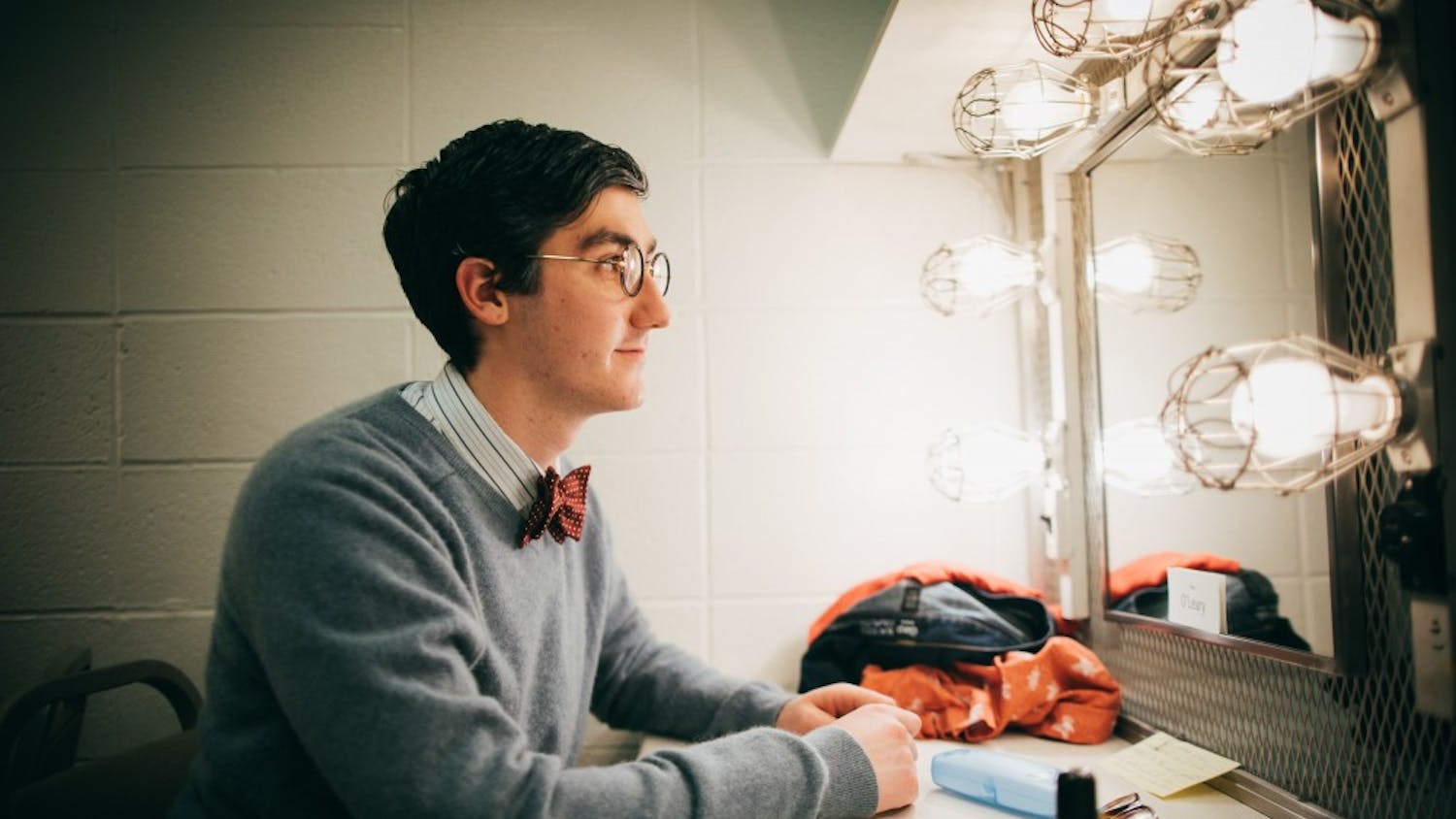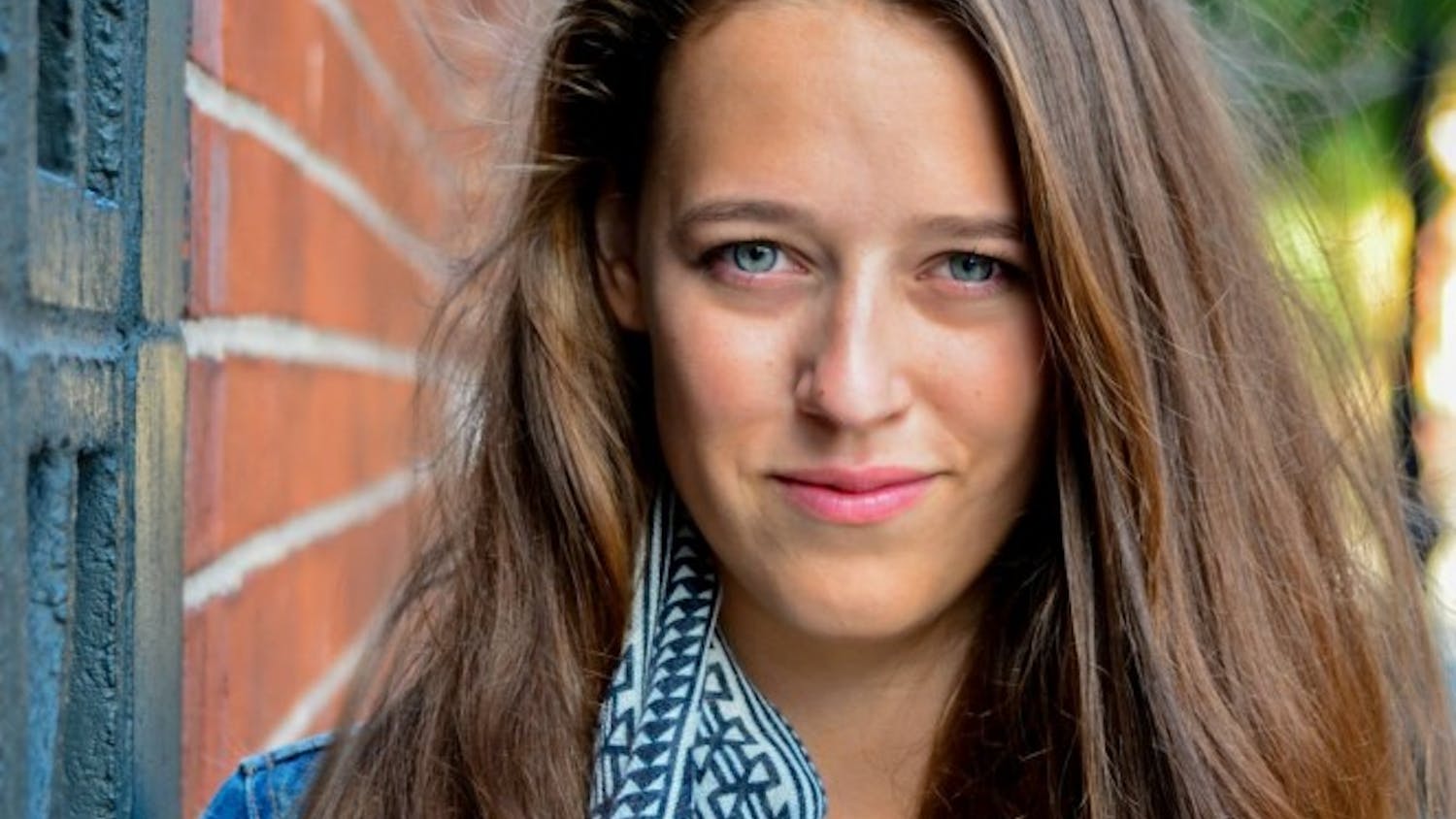Kelleen Moriarty ’19, the student director for the upcoming production of “The Glass Menagerie,” has been involved in theater since she was in middle school. According to Moriarty, when she first came to Dartmouth, she knew that she wanted to major in theater and eventually pursue it professionally, since theater was “the one thing” in her life she was “very sure” of.
According to associate professor of theater and Moriarty’s advisor Jamie Horton, Moriarty exhibits a great deal of potential in direction, which allowed her to pursue her honors thesis.
“Kelleen … [has] real promise; [she’s] one who has taken advantage of everything this department has to offer,” Horton said. “An honors thesis is granted to a student who has demonstrated development in their particular area of study, and Kelleen definitely qualified.”
Though Moriarty said she has worked in acting, set design, stage managing and technology, she has the most passion for directing. Naturally, her honors thesis in the theater department focuses on directing and culminates with the presentation of her innovative direction of Tennessee Williams’ classical play.
Unlike many theater majors, who, according to Horton, are interested primarily in contemporary work, Moriarty’s speciality lies in reimagining classics. He said that she takes more dated plays that are widely considered problematic and reinterprets them to see what they can teach us today.
Moriarty said that her passion for reinterpreing classics led her to select “The Glass Menagerie” for her thesis, as it is “one of the only major works in American dramatic canon that deals with disability and represents it on stage [but] does so in a way that too many disabled people … find troubling.” As a result, Moriarty said that she wants to reclaim the story of “The Glass Menagerie” for people with disabilities themselves.
“What has been really important to me in this project is to reframe, reimagine and reclaim this story for myself as a disabled artist … and other artists with disabilities.”
Moriarty said that, in order to “reclaim” the play and accurately represent the identity of disability, she ensured that many members of the cast and crew live with disabilities themselves, have loved ones who do or have different experiences with mental illness in some capacity.
The theatrical results Moriarty produces stem from not only talent, passion and a dedication to inclusivity, but also continuous, concentrated effort. While working on “The Glass Menagerie,” she dedicated most of winter term conducting her own research on Tennessee Williams’ body of work as well as developing a director’s book and script. Horton added that she did “a great deal of research on accessibility [and] the representation of disability.”
According to Clara Batchelder ’19, who has performed in many of Moriarty’s productions including “Circle Mirror Transformation,” another ingredient for Moriarty’s success is her dedication to collaboration, which is also her unique strength as a director.
For example, when Moriarty was in her research phase of the play, she said she felt overwhelmed and needed other people’s input, so she conducted design meetings with collaborators, in which she presented her research and artistic process for the meeting’s attendees to provide feedback on. Moriarty said, it was “wonderful” to get their perspectives and use them to improve the play.
In addition, Moriarty said her rehearsals revolved around her cast members. In them, she said she and her cast spent at least an hour talking about what they would be working on to create dialogue and an environment conducive to feedback.
“I’m not the kind of director who tells folks what to do,” Moriarty said.
Furthermore, Batchelder said that Moriarty often holds one-on-one rehearsals with her cast members in order to flesh out the characters. In these rehearsals, the cast member in question and Moriarty ask each other questions to understand the character better, such as by devising a backstory 16 years before the setting of the production or what the character should be doing off-stage, Batchelder said.
“She really cares about her actors as artistic collaborators … so it’s really fun to be in rehearsal with her,” Batchelder said.
Will Maresco ’19, a fellow theater major who has worked with Moriarty in the past, commended her caring nature, which he said impacts other aspects of her life as well. According to Maresco, Moriarty tries her best to bring attention to voices from marginalized communities that often go unheard.
“She fights pretty hard for those who need it,” Maresco said.
After Dartmouth, Moriarty said she plans to further pursue art and theater. Specifically, she said she wants to work as an apprentice or fellow in the theater world.
Horton added that he is also excited for her future and has faith in her capabilities.
“She is already well on her way to becoming a first-class director,” Horton said.
Though Moriarty said she wants to direct theater in the future, she added that she is open to wherever life takes her. Whatever form it takes, she said, “I want my future to be filled with art passion and creation.”
Moriarty’s production of “The Glass Menagerie” will be staged in the Warner Bentley Theater at 8 p.m. on May 9, 10 and 11.



